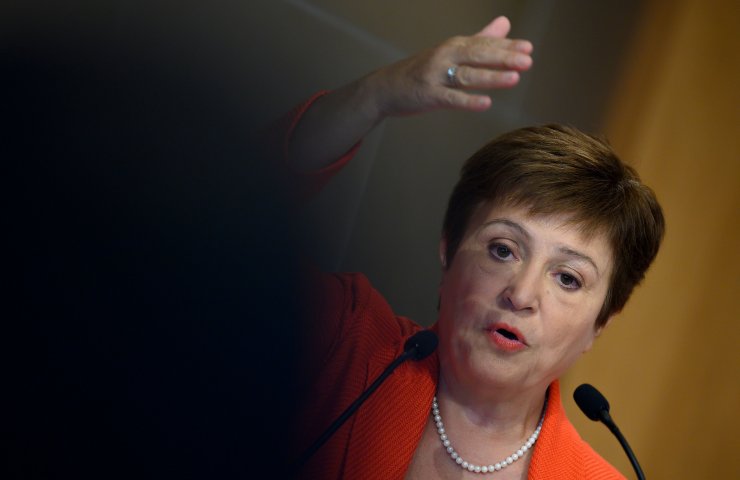head of the International monetary Fund (IMF) Kristalina Georgieva predicts that the global economy is liable to return to the great depression, caused by inequality and instability in the financial sector.
Speaking at the Peterson Institute for international Economics in Washington, Kristalina Georgieva said that the new IMF study that compares the current economy with "stormy 1920-ies", which culminated in the great market crash of 1929, showed that this trend has already begun.
Although the gap in inequality between countries has decreased over the past two decades, it has increased within countries, she said, highlighting the UK for particular criticism.
According to Georgieva, over the last 20 years, inequality between countries has become smaller, but the gap between citizens within one country became much more noticeable.
"In the UK, for example, 10% of the population have as much wealth, how much 50% of the poorest. This situation has been observed in almost every country of the Organisation for economic cooperation and development, where the gap between the richest and poorest is at or close to record", - quotes the head of the IMF The Guardian.
She added: "In a sense, this alarming trend is reminiscent of the beginning of the 20th century - when the twin forces of technology and integration led to the first Golden age, the roaring '20s years and, ultimately, to financial disaster".
in Addition, as noted by the head of the IMF, financial uncertainty will have an impact not only on businesses but on individuals, especially with the growing in many countries, social inequality among citizens. Kristalina Georgieva said that the "excessive" stratification of society "hinders growth", and "can stir up populism and political turmoil".
Earlier this week, Georgieva said that global warming is a big threat to economic stability, as yet another financial collapse. Climate crisis and financial stability are related, she said, and, leaving climate change unaddressed, it will threaten the financial stability of the world economy.
"climate Change is not only noticeable, but has a tendency to hit hardest the world's poorest countries and the poorest people," Georgieva said.
we will Remind, on October 24 1929 the Great depression — the global economic crisis that began with the stock market crash in the United States. Because of falling consumer demand, declining prices and wages. In this case, as found by economists in 1929-1932 in the United States decreased mortality and for several years has increased life expectancy.




